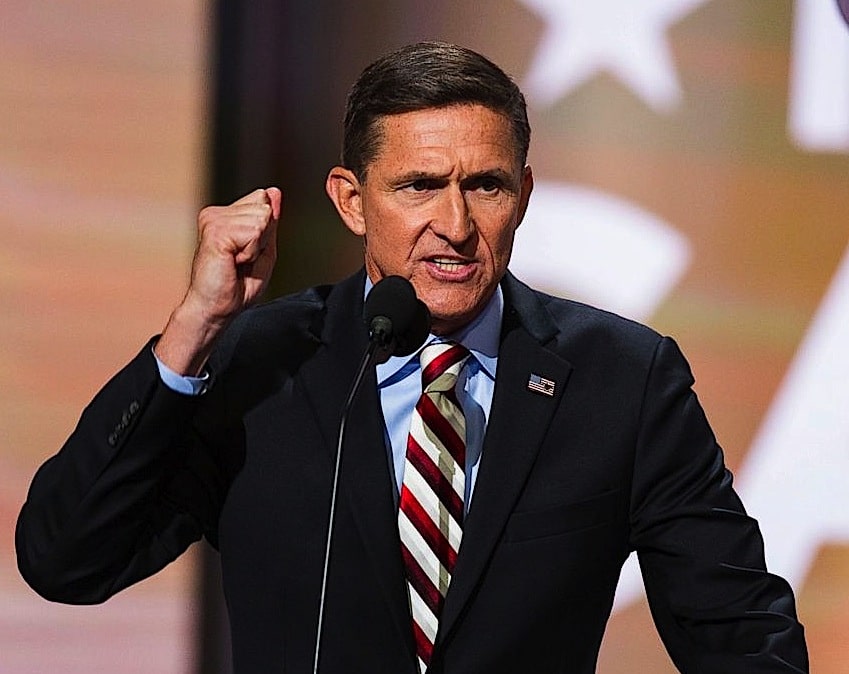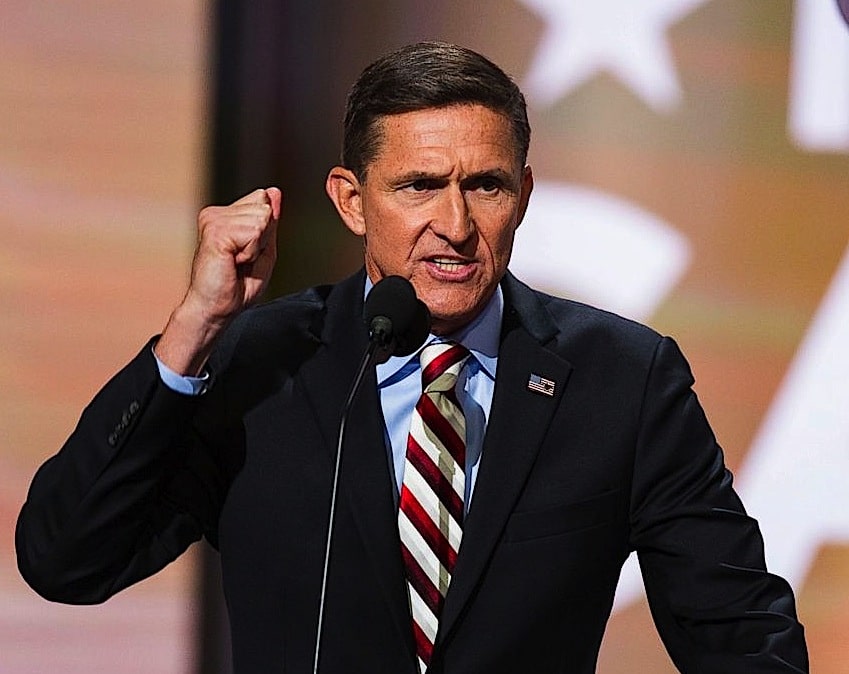It wasn’t hard to see this coming. President Trump’s National Security Advisor, Gen. Michael Flynn, delivered a clear threat to the government of Iran today, ominously stating that “as of this day, we are officially putting Iran on notice.” What is less clear is the the General’s rationale for issuing the threat.
Flynn cites two justifications for bringing the US on war footing against Iran. Both are dubious. First, he blames Iran for a recent attack on a Saudi naval vessel carried out by Houthi forces in Yemen. According to Flynn, because the Houthis are backed by Iran — itself a specious claim — it is Iran that is actually responsible for the attack.
Even if it were true that the Houthis are Iranian proxies, this kind of guilt-by-association reasoning gets quite awkward when considering what some US-backed rebels in Syria have done with US-provided weapons and training. Like beheading young boys.
What Flynn fails to mention is that Saudi Arabia has been attacking neighboring Yemen since 2015, with US assistance, leaving tens of thousands killed and injured and the Middle East’s poorest country in the midst of devastating famine. Saudi Arabia’s war on Yemen was unprovoked, initiated only to force Riyadh’s preferred leader onto its southern neighbor. Under Flynn’s logic, it is perfectly fine for Saudi Arabia to initiate a genocidal war of aggression against another country. But the victim of the attack had better not fight back or the United States will blame yet a third country that has nothing to do with it.
And these are the experts?
The second reason for putting Iran at the top of Flynn’s hit list: Over the weekend Iran tested a medium-range ballistic missile which Flynn claims violates the P5+1 negotiated and UN-backed Iran nuclear deal. UN Security Council Resolution 2231 “calls on” Iran to not undertake any activity related to ballistic missiles capable of delivering nuclear weapons, but this section has been interpreted as a request rather than a prohibition. There are no specific provisions in the nuclear deal that explicitly prevent Iran from testing a missile.
In fact, Iran has tested several ballistic missiles since the nuclear agreement was signed but this time the US reaction is far different. Iran has been “emboldened,” said General Flynn, by an Obama Administration that was “weak and ineffective” in its dealings with Iran. He went on to lament that Iran has not been “thankful to the United States for these agreements.”
Flynn’s subordinates have long complained of his aggressive style, including a demand after the 2012 Benghazi attack on a CIA facility that analysts find some link to Iran. This pressure to “stove-pipe” intelligence to suit a pre-determined policy is eerily reminiscent of the methods used to push the 2003 Iraq war. He was fired from his previous job as Defense Intelligence Agency chief for, reportedly, his extremely hostile views toward Iran.
Adding together President Trump’s call to the Saudi king, where they discussed Iran’s “destabilizing” actions, and a pre-emptive war authorization bill languishing in the US House, the current danger of a US strike on Iran is just an accident — or a false flag — away.


